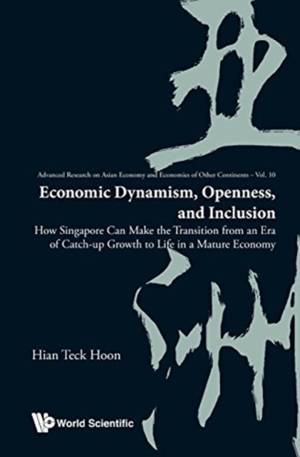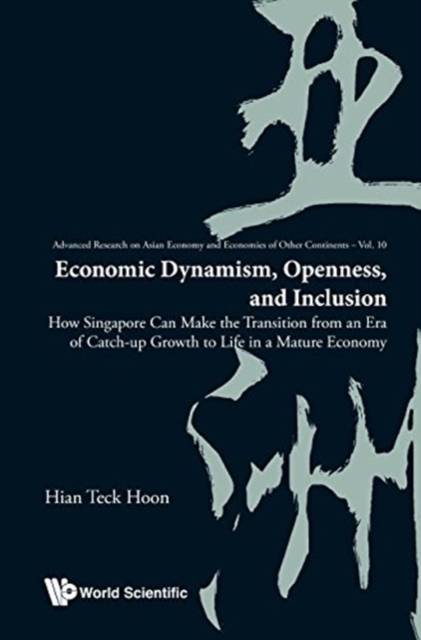
- Afhalen na 1 uur in een winkel met voorraad
- Gratis thuislevering in België vanaf € 30
- Ruim aanbod met 7 miljoen producten
- Afhalen na 1 uur in een winkel met voorraad
- Gratis thuislevering in België vanaf € 30
- Ruim aanbod met 7 miljoen producten
Zoeken
Economic Dynamism, Openness, and Inclusion: How Singapore Can Make the Transition from an Era of Catch-Up Growth to Life in a Mature Economy
Hian Teck Hoon
€ 119,45
+ 238 punten
Omschrijving
As Singapore progresses from a newly-independent nation to a more mature economy, the economic challenges it faces have evolved.In the 50 years following Singapore's independence, the country tackled economic challenges relating to a fledgling nation, that included launching onto a path of economic take-off, and managing workers' wage aspirations without rising unemployment. It met those challenges, successfully transiting from relative poverty in the 1960s to relative prosperity today.As the country enters the next phase of its economic development, having now surpassed the US standard of living as measured by real GDP per capita, it faces another set of challenges: How to transit from catch-up growth arising from technological diffusion from frontier economies, to generating indigenous innovation? How to face the problem of a shrinking local workforce? How to manage a shift in job preferences with rising wealth and educational attainments?This volume provides a theory of Singapore's economic development. With a coherent theory capable of explaining how Singapore got to where it is, the book analyses how the future might look like for the Singapore economy. With its forward-looking analysis, this book is valuable to students as it weaves macroeconomic data together with growth theory and highlights the interaction of economic forces with social influences and political institutions. It also serves as a good reference for other emerging economies that, like Singapore, want to avoid the middle-income trap, and for researchers interested in analysing the economic possibilities for current and future Singaporeans.
Specificaties
Betrokkenen
- Auteur(s):
- Uitgeverij:
Inhoud
- Aantal bladzijden:
- 176
- Taal:
- Engels
- Reeks:
- Reeksnummer:
- nr. 10
Eigenschappen
- Productcode (EAN):
- 9789813236226
- Verschijningsdatum:
- 7/01/2019
- Uitvoering:
- Hardcover
- Formaat:
- Genaaid
- Afmetingen:
- 152 mm x 229 mm
- Gewicht:
- 403 g

Alleen bij Standaard Boekhandel
+ 238 punten op je klantenkaart van Standaard Boekhandel
Beoordelingen
We publiceren alleen reviews die voldoen aan de voorwaarden voor reviews. Bekijk onze voorwaarden voor reviews.











